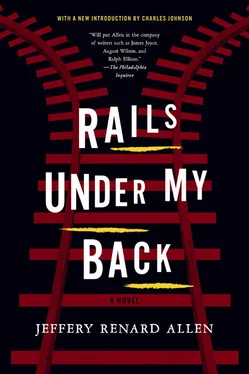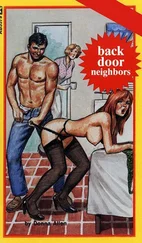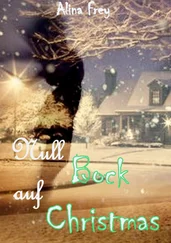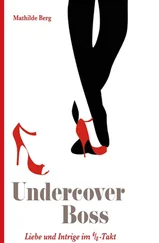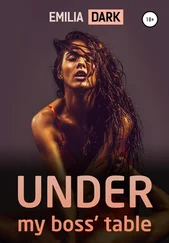Let us rise now. Heavy though we are. Rise as on that great getting-up morning.
The words dimly echoed what Hatch was attempting to slip away from.
For as the sufferings of Christ abound in us, so our consolation also aboundeth by Christ.
Yes!
Stand now, and go, stand, having your loins girth about with truth, and having on the breastplate of salvation. Stand now, and go.
MISS JONES, Reverend Blunt said, we got a problem here. He took both of Sheila’s hands with his long-fingered preacher hands. He wore a sky-blue suit made in heaven. I couldn’t find nobody to fix the air conditioning. Sheila said nothing.
Hatch gave the reverend his meanest look but the reverend wouldn’t look in his direction. The reverend had promised that the faulty air-conditioning units in the two limousines would be fixed by the time the funeral ended. A promise he either couldn’t or wouldn’t keep. Now they would drive two hours to the Houston graveyard in the full heat. Lula Mae’s instructions for her burial written in her own hand: BURY ME WITH MAMMA DADDY AND THE REST.
Now, I’m gon return some of yo money. The reverend rubbed Sheila’s hand as he spoke. We can discuss that later. Why don’t yall hurry on. It’s a long drive.
They loaded up the limousines. Rolled down the windows. Prayed for a cool breeze. Started the engines.
Reverend Blunt leaned into the open driver’s window and passed his mother what looked like a brick of hundred-dollar bills. In case of emergency, he said. The mother smiled. I’ll see you when I get back, he said.
SUN WHIPPED THE LIMOUSINE FROM SIDE TO SIDE. Slapped him across the face. He struggled out of his blazer. Loosened his tie. The wet heat touched him everywhere at once, a hot bath. Sheila looked quietly ahead, determined. Intact and withdrawn and conscious all at the same time. Lula Mae’s long spell in bed had prepared her for this moment. Death was a challenge, for that was what it was, a war. Beulah appeared to be asleep. Porsha was looking out the open window, wind moving her hair. Gracie and the rest of the family followed in the other limousine. Sweat moved in the wind and he thought of Elsa’s fragrant rain of black hair. It came to him just like that. The first thought of her in days. Since … He leaned forward in the limousine to get a better view of the tall trees that lined the road and held the sky in place. (He would sit like this for two hours and let the heat prey on him.) Looking and seeing, everything neither familiar nor strange. Abu had never been down South, and Hatch had spent many hours talking up images of his southern experience. He wanted to tell himself these now, bring it all back, but that past was hidden behind a screen of trees. Mules and shadows of mules black-moving against the green. Black-moving into the red ‘Sippi delta. Black images glided through the blue sky. He sat and watched from the black limousine. Black absorbs without reflection, roots itself in unreflecting calm.
Seemed like they always arrived in West Memphis to a sickle moon and the flutter of insects, Lula Mae with a big smile and an expansive hug. The yard drank black water at night and spat up dew in dawn silence. Birds bounced from tree limb to tree limb. You and Jesus searched the grass for dragon’s teeth. Kept them on you as a secret. Rain always fell clear, solid, and slow. After the rain, the sun sailed out into a clear sky. Broad dented leaves — and winged seeds, birch? maple? elm? — sparkled light. Black cherries hung straight and heavy among foliage. You and Jesus pulled snails from their shells, then held up the freed shells to your ears to hear ocean roar. Frogs bellowed, their voices grave, deep, measured. Masters of the earth, they wandered out into the road — yes, the road, a rich mixture of red dirt and red gravel — to stop cars. You and Jesus tossed flattened frogs like Frisbees into the cornfield across the road. Stop that chunkin! Lula Mae screamed from the yard. A shower of leaves and Lula Mae with a mop handle knocking apples, pears, or plums from the trees in her yard. You had to guard your head from falling fruit. You had the same fear of falling when you passed beneath the horseshoe nailed above every door in Lula Mae’s house. Her fruit made the best preserves for your morning toast, eggs, and bacon. Miss Bee’s cornfield grew transparent in the setting sun’s light. Lula Mae pulled the creaking attic stairs down from the ceiling — thick robot legs — unfolded them, and lit a kerosene lamp to a fragrant glow. You and Jesus followed her up the wobbly stairs. Her shadow quivered on the attic ceiling and walls.
MR. BYRON MET THE PROCESSION in Fulton, a good sixty miles from West Memphis, another state, ‘Sippi, near Houston, the family’s beginning place. A little red-colored white man in overalls and a Cat trucker’s cap, the visor pointed right at the sun. He leaned into the window of each limousine and gave instructions to the driver. Follow close behind me, he said. You get lost, just honk.
Who’s that ole white man? Hatch said.
Mr. Byron, Sheila said.
Who?
Mr. Byron.
Who’s that?
Mr. Harrison. His son. Nephew. Grandson.
Who? I don’t know no Harrison.
The people she—
What people?
Questions furled and unfurled into fire. Mr. Byron drove his black car fast as if the cemetery was in danger of disappearing. Fast in transport, fast in arrival.
Do you know how to find this cemetery? Hatch said.
Yes, Sheila said.
Is that white man the only one who know?
Sheila said nothing.
Mr. Byron guided the family through the cemetery. Nowhere else had Hatch seen earth so red. Gravestones shimmered in the high noon light. They followed Mr. Byron past a clutter of crippled tombstones,
SACRED TO THE MEMORY OF FLORA
A COLORED WOMAN, WHO DIED JAN. 5, 1826, AGED 104 YEARS
STRONG FAITH, STRONGER, TRUSTING IN HER SAVIOUR
then mounds with handmade crosses, then mounds with no crosses at all. Hatch knew. The Griffith family was buried here. All whose hearts had quit the job. Buried beneath red soil. Beulah had worked for the Byron (Harrison?) family. Koot and Big Judy too, for all Hatch knew. There Candice Griffith. Mr. Byron’s voice banged like a gavel. He pointed to an unmarked grave. Hatch smelled brilliantine on the white man’s hair. There Dave Griffith. There Carrie Sweet Griffith. There Judy Randle. There Buck Randle. Big Judy’s husband. There Arteria Stone. There Nate Stone. There Dave Griffith the Second. The weight of names. All buried in the same red constipated earth. All gone headlong in red clay holes. Only R.L. was missing, interred somewhere in California, foreign soil.
Whosoever will, whosoever will
Hear the loving Father
Call the wanderer home
Whosoever will may come.
We got to bring Sam home, Beulah said. Sheila and Rochelle kept her standing, holding up her arms like broken wings. Bring him here. Gather up the family. Yall ain’t got to wait long. She was speaking to the graves now. I’ll be with you soon. Follow you now if I could.
Hatch and three strangers dressed in black held two wide straps of canvas that cradled the casket over the grave’s yawning red toothless mouth. On the headman’s signal, Hatch released length after muscle-straining length of the strap, like undocking a boat to open water. He lost his footing and almost slipped into the grave.
A WHITE HOUSE comes to you from long-forgotten times. Floats, flutters, flies, a moth-eaten memory.
You reached it by a red string of road that snaked up through the hills — at the foot of the hills, neat white double-level houses, each perfect as a double scoop of ice cream — and from there up to the crown, flat houses like rotting boats, scaling walls, sagging blinds, torn window screens, pieces of curtain, sunlight blasting the exposed ribs and wafting mildew smells as Big Judy gunned her car along the narrow, curving road, yes, right up to the crest of the hill, where her house stuck out under the sunlight. Koot’s house was just down the road, pushed back beneath the shadow of poplar and maple trees, like the oval portraits of every family member (except R.L.’s) pushed back into the space above Koot’s fireplace — as if someone had mashed it there under their palm. A big range house — yes, how big it seemed to you then; years later, you returned to it (Dave’s funeral) to discover that it had shrunken in size, like cotton under excessive heat — sweating in the Fulton summer.
Читать дальше
